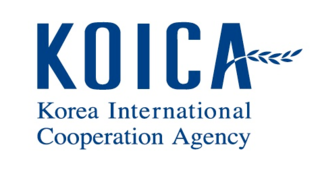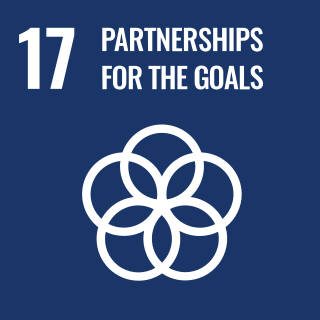
The Department for International Development (DFID) was a department of HM Government responsible for administering foreign aid from 1997 to 2020. The goal of the department was "to promote sustainable development and eliminate world poverty". DFID was headed by the United Kingdom's Secretary of State for International Development. The position was last held between 13 February 2020 and the department's abolishment on 2 September 2020 by Anne-Marie Trevelyan. In a 2010 report by the Development Assistance Committee (DAC), DFID was described as "an international development leader in times of global crisis". The UK aid logo is often used to publicly acknowledge DFID's development programmes are funded by UK taxpayers.
Official development assistance (ODA) is a category used by the Development Assistance Committee (DAC) of the Organisation for Economic Co-operation and Development (OECD) to measure foreign aid. The DAC first adopted the concept in 1969. It is widely used as an indicator of international aid flow. It refers to material resources given by the governments of richer countries to promote the economic development of poorer countries and the welfare of their people. The donor government agency may disburse such resources to the government of the recipient country or through other organizations. Most ODA is in the form of grants, but some is measured as the concessional value in soft (low-interest) loans.

Development aid is a type of foreign/international/overseas aid given by governments and other agencies to support the economic, environmental, social, and political development of developing countries. Closely related concepts include: developmental aid, development assistance, official development assistance, development policy, development cooperation and technical assistance. It is distinguished from humanitarian aid by aiming at a sustained improvement in the conditions in a developing country, rather than short-term relief. Development aid is thus widely seen as a major way to meet Sustainable Development Goal 1 for the developing nations.
Danish International Development Agency (DANIDA) is the brand used by the Ministry of Foreign Affairs of Denmark when it provides humanitarian aid and development assistance to other countries, with focus on developing countries. There is no distinct Danida organisation within the Ministry.

The Department of Foreign Affairs and Trade (DFAT) is the department of the Australian federal government responsible for foreign policy and relations, international aid, consular services and trade and investment. Australia's total official development assistance (ODA) decreased in 2022 due to differences in Australia's financial year reporting and the timing of its COVID-19-related expenditure, representing 0.19% of gross national income (GNI).

An export credit agency or investment insurance agency is a private or quasi-governmental institution that acts as an intermediary between national governments and exporters to issue export insurance solutions and guarantees for financing. The financing can take the form of credits or credit insurance and guarantees or both, depending on the mandate the ECA has been given by its government. ECAs can also offer credit or cover on their own account. This does not differ from normal banking activities. Some agencies are government-sponsored, others private, and others a combination of the two.
Japan emerged as one of the largest foreign aid donors in the world during the 1980s.
Nepal relies heavily on foreign aid, and donors coordinate development aid policy through the Nepal Development Forum, whose members include donor countries, international financial institutions, and inter-governmental organizations. Japan is Nepal's largest bilateral aid donor, and the World Bank and Asian Development Bank are the largest multilateral donors. Donors have been reported as losing confidence in Nepal as a result of political interference and corruption in poverty relief efforts as well as the country's apparently poor capacity to utilize aid. According to World Bank figures, official development assistance increased from US$8.2 million in 1960 to US$369 million in 2003 and then fell to US$177 million in 2004. According to Nepal's Ministry of Finance, total foreign aid committed in fiscal year (FY) 2003 was US$555 million, with 63.3 percent in grants and 36.7 percent in loans. In FY2004, total foreign aid committed was US$320 million, of which 37.7 percent was grants and 62.3 percent, loans. In June 2004, active World Bank credits totaled US$302 million, with the greatest portions allocated to the financial sector and to energy and mining. By the end of 2012, the outstanding World Bank IDA loan totaled $ 1.48 billion.

The Directorate-General for International Partnerships is the European Commission department responsible for international development policy. It operates under the authority of the European Commissioner for International Partnerships, Jutta Urpilainen.

The Organisation for Economic Co-operation and Development's (OECD) Development Assistance Committee (DAC) is a forum to discuss issues surrounding aid, development and poverty reduction in developing countries. It describes itself as being the "venue and voice" of the world's major donor countries.

The Korea International Cooperation Agency was established in 1991 by the Ministry of Foreign Affairs of South Korea as a governmental organization for Official Development Assistance (ODA). KOICA's goal is to enhance the effectiveness of South Korea's grant aid programs for developing countries by implementing the government's grant aid and technical cooperation programs. KOICA is led by three-year-term president of the board who is appointed by the President upon the recommendation of Foreign Minister.

Jorge Manuel Lopes Moreira da SilvaGOIH is a Portuguese engineer and politician of the Social Democratic Party serving as the Executive Director of the United Nations Office for Project Services, UNOPS, since 2023.
The Portuguese Institute for Development Support is a development aid agency under the Portuguese Ministry for Foreign Affairs. Since January 2003, the institute is responsible for the coordination, supervision and direction of the Portuguese official development assistance to developing countries.
The East Asia Climate Partnership (EACP) is Korea's international initiative for global cooperative development. Led by the Korea International Cooperation Agency (KOICA), a Korean government agency responsible for providing overseas grant aid, the EACP helps tackle climate change in developing countries and promotes green growth in Asia.

Policy coherence for development (PCD) is an approach and policy tool for integrating the economic, social, environmental and governance dimensions of sustainable development at all stages of domestic and international policy making. It is the aim of Policy Coherence for Development to make foreign relations to be as ecologically, economically and socially coherent as possible and thereby to make international co-operation for international development more effective.

Irish Aid is the Government of Ireland's official international development aid programme. Irish Aid is managed by the Development Co-Operation and Africa Division (DCAD) of the Department of Foreign Affairs (DFA). According to the OECD, Ireland’s total ODA increased in 2022, mostly due to higher in-donor refugee costs and higher contributions to international organisations. ODA represented 0.64% of gross national income (GNI). The Irish Aid programme is an integral part of Ireland's foreign policy.
Four high level forums on aid effectiveness were held between 2003 and 2011 as part of a "continuous effort towards modernising, deepening and broadening development co-operation and the delivery of aid" coordinated through the OECD. They took place at Rome (2003), Paris (2005), Accra (2008) and Busan (2011).

Sustainable Development Goal 17 is about "partnerships for the goals." One of the 17 Sustainable Development Goals established by the United Nations in 2015, the official wording is: "Strengthen the means of implementation and revitalize the global partnership for sustainable development". SDG 17 refers to the need for the nonhegemonic and fair cross sector and cross country collaborations in pursuit of all the goals by the year 2030. It is a call for countries to align policies.

Aid for Trade is an initiative by the World Trade Organization (WTO), as well as a policy concept in international economic and trade development, concerned with helping developing countries and particularly the least developed countries build trade capacity and infrastructure.












